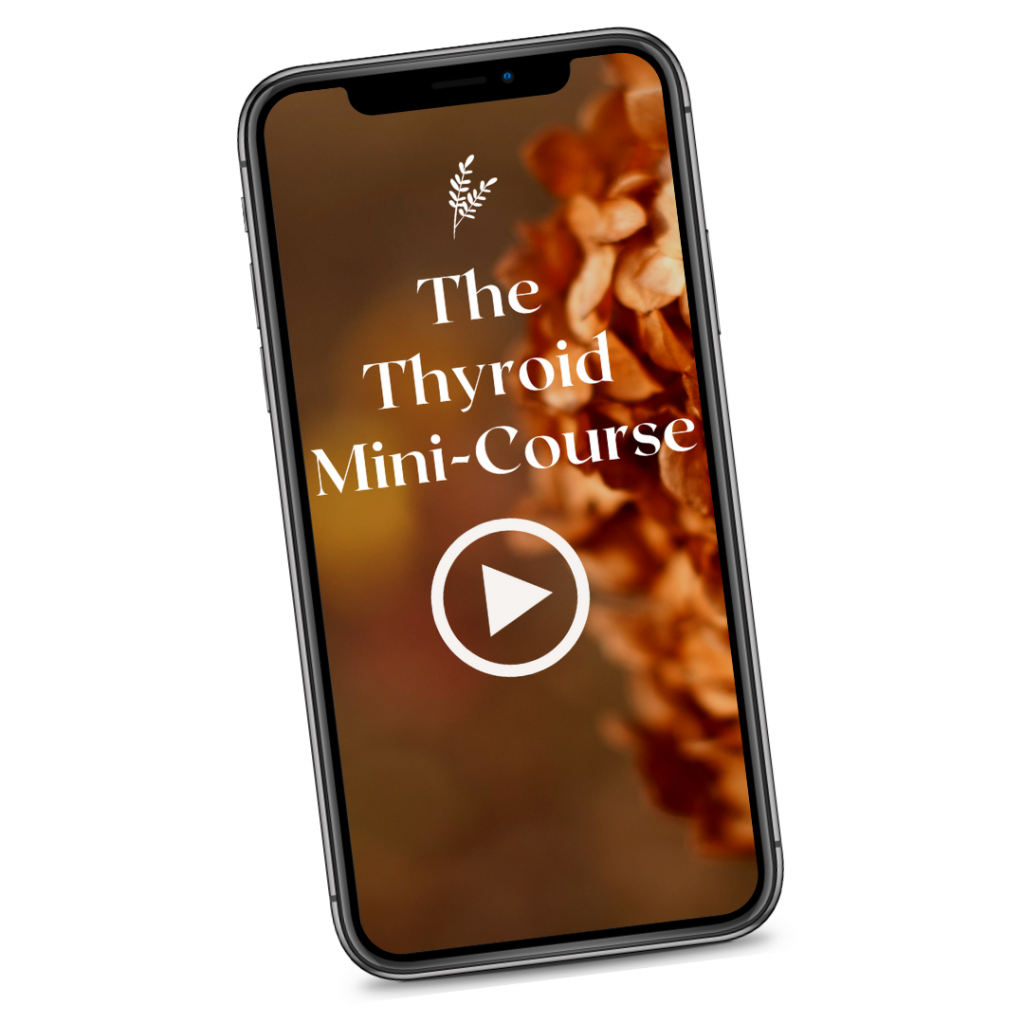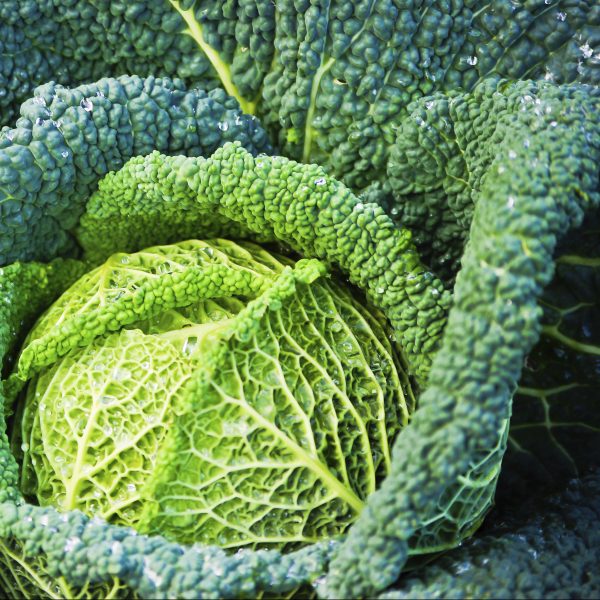Did you know that the health of your thyroid plays a critical role in achieving pregnancy? What many people don’t know is that thyroid issues can be sneaky; developing and often worsening silently over time. Thyroid health decline may potentially progress as a cascade of changing thyroid function. It goes like this, if you develop Hashimoto’s Thyroiditis, it could result in or cause an underactive thyroid, or hypothyroidism, impacting the proper function of the thyroid gland and your fertility health. If treated aggressively with medication, there is potential for hypothyroid symptoms to shift to those of overactive thyroid, or hyperthyroidism (and vice versa, hyperthyroidism treated too aggressively could transform into hypothyroidism).
The thyroid gland is important for fertility health because it plays a role in hormone balance, a healthy menstrual cycle and libido, even basal body temperature (BBT). The thyroid absorbs iodine and combines it with L-tyrosine to make thyroid hormones. These hormones are responsible for healthy metabolism, growth, development and repair of the each and every cell of the body, most importantly the central nervous system of a fetus.
What is Hashimoto’s Thyroiditis?
Hashimoto’s Thyroiditis, also known as Hashimoto’s Disease (and frequently just referred to as Hashimoto’s) is an inflammatory autoimmune disease. Autoimmune diseases are accompanied by an elevated inflammatory response due to the body identifying various organs and systems of the body as a foreign invader. This immune system attack may lead to the loss of, and degeneration of tissue and/or organ structure and function.
Who Develops Hashimoto’s Thyroiditis?
Hashimoto’s thyroiditis can occur in men and women, but scientists and doctors know it to be more of an issue for women between the ages of 30 and 50 with a family history of thyroid issues, or other autoimmune disorders. It has been proven that genetics, gender (sex hormones might play a role), not having enough iodine circulating in the body, certain medications, exposure to radiation and even pregnancy [in woman] are all potential contributors to why women and men suffer from this autoimmune disease.
At the core of Hashimoto’s Thyroiditis, is systemic inflammation caused by the body chronically attacking the thyroid gland as a result of mistaking the thyroid for a harmful substance. A thyroid gland under attack is not able to properly make the thyroid hormones, thyroxine (T4) and triiodothyronine (T3), that regulate how the body uses energy known as our metabolism – in short, the thyroid gland is not able to make enough thyroid hormone to meet the body’s needs – and hypothyroidism can result. It is believed that hypothyroidism caused by Hashimoto’s Thyroiditis progresses slowly over months, even years.
Hashimoto’s Thyroiditis and Fertility
It is very important to solve thyroid problems before conceiving a baby. If Hashimoto’s Thyroiditis is left untreated, symptoms of an underactive thyroid can worsen and cause fertility problems including: menstrual cycle issues such as menorrhagia (heavy menstruation) or irregular periods, low basal body temperature (BBT), low libido, muscle cramps/tenderness, hair loss, severe PMS, sleep disturbances and weight gain, problems getting pregnant and infertility, miscarriage, preterm birth and even neurodevelopmental issues for your baby.

Learn How To Support Your Thyroid Naturally With My Thyroid Mini-Course
- Learn how to support your thyroid naturally with nutrition, supplements and plants.
- Know how to tell whether your thyroid, endocrine system or/and adrenals needs support
- Self-care therapies to support your thyroid and endocrine system
Natural Thyroid Health Support Plan
The idea here is to support metabolism and a healthy inflammatory response through diet, exercise and herbs.
Nutrition – Diet
Many healthcare practitioners suggest when you learn you have or suspect an autoimmune disease, to immediately start an elimination diet to remove foods that have the potential to contribute to inflammation. By eliminating specific foods you will help the body work to normalize inflammatory response, balance hormones and support the thyroid gland in producing hormones (likewise helping the body convert these hormones).
What to Consider Eliminating from Your Diet…
- Gluten – “The gluten molecule is very similar to thyroid tissue, and it is thought that the immune system identifies the thyroid gland as gluten and attacks it.”
- Non-organic dairy – non-organic dairy contains the synthetic growth hormone rGBH which has been found to increase inflammation in humans (even those without autoimmune diseases).
- Unsaturated oils – doctors speculate that these oils may contribute to hypothyroidism possibly in part because they contain high amounts of omega-6 fatty acids which promote inflammation and are often rancid even before they make it to the grocery store shelf.
- Soy – soy isoflavones are known to disrupt endocrine system function and may lower concentrations of the thyroid hormone T3.
- Iodized salt – Many resources say to use iodized table salt when you have a thyroid health issue, but integrative nutritionists tend to disagree. These practitioners say it is highly unlikely one would be able to eat enough iodized table salt to get the 150 mcg daily recommended dosage of iodine, but mostly because it is not advisable to consume such a processed product that often contains fillers- like sugar and silicates.
Following a Fertility Diet rich in high-quality proteins and fats, with a variety of fresh, whole, organic vegetables, fruits, nuts and seeds, and whole grains, even Fertility Superfoods is a critical step on the path to supporting healthy thyroid function.
What to Consider Including in Your Diet In Addition to the Fertility Diet…
- With goiter – consume goitrogens or foods that block the body’s ability to use iodine like cabbage, turnips, mustard greens, peanuts, pine nuts and millet (Notes: cooking these foods may inactivate goitrogens).
- Without goiter – consume rich sources of iodine – sea vegetables like kelp, dulse, nori, wakame and kombu, ocean fish, and unprocessed sea salt.
Nutritional Supplementation
- Selenium – the richest food source is the Brazil nut, just one provides nearly 100 percent of your recommended daily amount of selenium, a nutrient that protects against oxidative damage as well.
- Zinc – beef, liver, chicken (all organic, grass-fed or free range), oysters, nuts and seeds, and whole grains.
- Tyrosine – high-protein foods like turkey, chicken, dairy, almonds, pumpkin seeds, sesame seeds, lima beans, even avocados.
- Vitamins A, D, E, C and B
- Whole food multivitamin
- Essential fatty acids
- Antioxidants – known to be necessary to combat the free-radical damage caused by chronic inflammation.
Click here to learn more about a nutritional and herbal supplement for thyroid health…
Adaptogenic Herbs for Stress Management and Adrenal Support
These will help to support energy levels and vitality (metabolism or metabolic function) and even reduce the damage from oxidative stress.
- Ashwagandha (Withania somnifera) and Schisandra (Schisandra chinensis) – stimulate the thyroid, are adrenal and reproductive system tonics, and support the body’s natural inflammatory response.
- Rhodiola root (Rhodiola rosea) – is a potent source of antioxidants that supports endocrine system function for hormone balance, healthy immune system function and stress relief.
- Natural thyroid support – My favorite nutritional supplement specially formulated for thyroid gland support.
- Systemic Enzyme Therapy – supports proper immune system function and a healthy immune response in people with an autoimmune disease like Hashimoto’s Thyroiditis.
- Employ relaxation techniques and exercise a minimum of 30 minutes 5 times a week.
An underactive thyroid gland has been found to be very responsive to natural support through dietary changes and supplementation, as well as medical support through prescription thyroid medications. Since thyroid hormone medication is often indicated, the above dietary recommendations are meant to be in addition to medical therapy, not in place of it, and it is best to consult your healthcare provider if you wish to supplement in addition to the medication you are taking. Consider these simple changes and know that in creating a practice that supports your thyroid health, you are supporting your overall fertility health and the health of your baby too.
Note: Herbs and herbal combinations indicated for hyperthyroidism are contraindicated in cases of hypothyroidism and vice versa. Herbs and herbal combinations should not be combined with thyroid replacement therapies and/or medications. Those wishing to supplement with herbs, or herbal combinations to support their thyroid health should work with their healthcare provider to be monitored regularly with thyroid testing.
To learn more about subjects covered in this article please visit the following links:
Hypothyroidism- Every Woman’s Guide to Hypothyroidism and Fertility
Hormone Balance- Restore Hormonal Balance for Improved Fertility
Thyroid- Solve Thyroid Problems Before Conceiving a Baby
Aspartame- 5 Reasons to Avoid this Anti-Fertility Food Additive
- Barton, D. Solve Thyroid Problems Before Conceiving a Baby. Retrieved from: https://natural-fertility-info.com/solve-thyroid-problems-before-conceiving-a-baby.html
- Dr. Amy Myers. (n.d.) Mind Body Green. 10 Signs You Have An Autoimmune Disease + How To Reverse It. Retrieved from: http://www.mindbodygreen.com/0-8843/10-signs-you-have-an-autoimmune-disease-how-to-reverse-it.html
- Friedlander, Jodi & Bauman, Edward. (2007) Hashimoto’s Autoimmune Thyroiditis: Eating for Health Applications for Recovery. Retrieved from: https://www.baumancollege.org/hashimotos-autoimmune-thyroiditis/
- Helt, M. (n.d.)Every Woman’s Guide to Hypothyroidism and Fertility. Retrieved from: https://natural-fertility-info.com/hypothyroidism-reproductive-health.html
- Hormone Health Network. Fact Sheet: Hashimoto’s Disease (n.d.) Retrieved from: https://www.hormone.org/diseases-and-conditions/thyroid/hashimoto-disease
- MayoClinic.org. Diseases and Conditions; Hashimoto’s disease. (n.d.) Retrieved from: http://www.mayoclinic.org/diseases-conditions/hashimotos-disease/basics/definition/con-20030293
- National Endocrine and Metabolic Diseases Information Service (NEMDIS). (n.d.) Hashimoto’s Disease. Retrieved from: http://www.endocrine.niddk.nih.gov/pubs/hashimoto/
- Romm, A. (2010) Botanical Medicine for Women’s Health, Churchill Livingstone
- Women’s Health.gov. Hashimoto’s disease fact sheet. Retrieved from: https://www.womenshealth.gov/a-z-topics/hashimotos-disease





